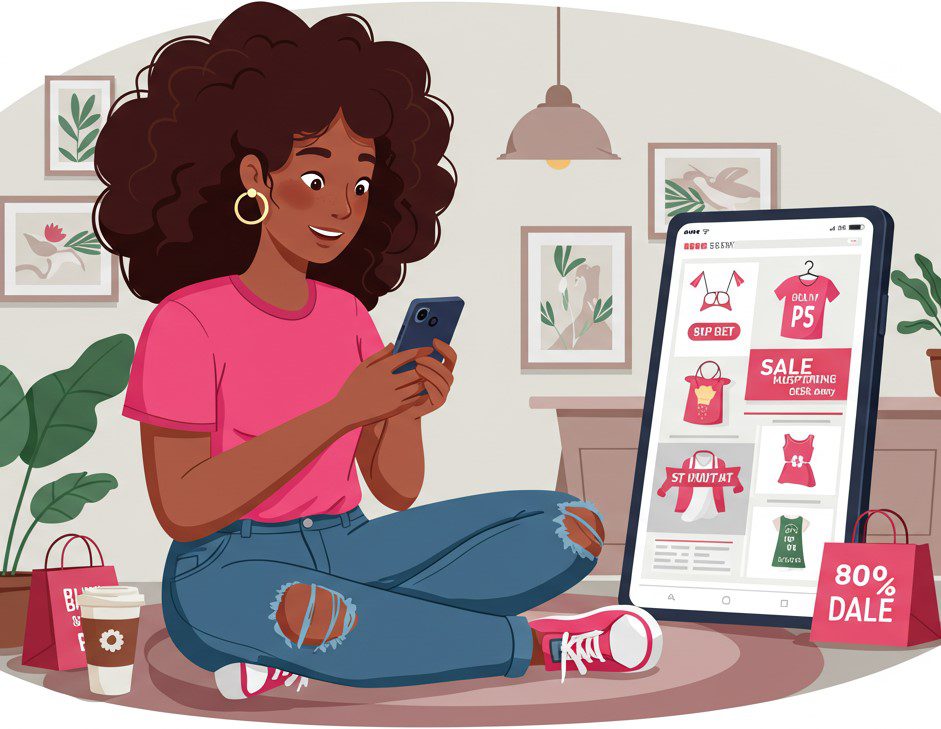How to Market to Millennials: A Strategic Guide for Small Business Owners
In today’s competitive marketplace, effectively reaching millennial consumers (born between 1981 and 1996) has become essential for small business growth. This generation, now in their late twenties to…
5 min read
How to Market to Millennials: A Strategic Guide for Small Business Owners
In today’s competitive marketplace, effectively reaching millennial consumers (born between 1981 and 1996) has become essential for small business growth. This generation, now in their late twenties to early forties, represents significant purchasing power and influence. According to recent data from Pew Research, millennials surpassed Baby Boomers as the largest adult population in the United States, making up approximately 72.1 million Americans.
This guide explores evidence-based strategies to connect with millennial consumers, backed by recent research and statistics from reputable sources.
Understanding Millennial Consumer Behavior
Before implementing marketing tactics, it’s crucial to understand what drives millennial purchasing decisions:
Values-Driven Purchasing: According to a 2023 McKinsey study, 83% of millennials expect the brands they support to align with their personal values. This represents a 12% increase from similar studies conducted just three years ago.
Digital Nativity: Deloitte’s 2024 Digital Consumer Trends report found that millennials spend an average of 7.2 hours daily on digital devices, with 93% owning smartphones and checking them approximately 150 times per day.
Experience Over Possession: American Express research reveals that 78% of millennials prefer spending money on experiences rather than physical products, highlighting a significant shift from previous generations’ consumption patterns.
Effective Marketing Strategies for Reaching Millennials
1. Establish an Authentic Social Media Presence
Why it matters: According to Sprout Social’s 2024 Index, 76% of millennials follow brands on social media, and 67% have made purchases after seeing a product on social platforms.
Implementation tips:
- Focus on platforms where millennials spend their time: Instagram (72% millennial adoption rate), YouTube (85%), and TikTok (56% and growing rapidly among older millennials), according to Pew Social Media Use in 2023 research.
- HubSpot’s 2023 Social Media Marketing Report found that user-generated content receives 4.5% higher conversion rates than traditional brand-created content when targeting millennials.
- Respond promptly to engagement: Khoros research shows 83% of millennials expect responses within 24 hours on social media.
2. Prioritize Mobile Optimization
Why it matters: Google’s 2023 Consumer Insights study found that 67% of millennials research products on their mobile devices before making in-store purchases, and 79% have abandoned transactions due to poor mobile experiences.
Implementation tips:
- Ensure your website is mobile-responsive with fast loading speeds (under 3 seconds).
- Implement mobile payment options: According to eMarketer, 89% of millennials use mobile payment platforms.
- Adobe Analytics data shows that millennials are 2.5x more likely than other generations to abandon websites that aren’t mobile-optimized.
3. Leverage Authentic Storytelling and Purpose
Why it matters: Edelman’s 2024 Trust Barometer found that 73% of millennials will pay more for products from brands that demonstrate authentic commitment to societal issues, and 68% actively research a company’s positions before purchasing.
Implementation tips:
- Highlight your business’s origin story, values, and community impact.
- Demonstrate transparency: According to Forrester’s 2023 Customer Experience Index, 71% of millennials value brands that are honest about their limitations and mistakes.
- Consider cause marketing: Porter Novelli’s 2024 Purpose Tracking Study found brands with clear purpose-driven initiatives saw 40% stronger customer advocacy among millennial consumers.
4. Create Personalized Experiences
Why it matters: Salesforce’s 2024 State of the Connected Customer report revealed that 76% of millennials expect companies to understand their unique needs and expectations, and 72% will switch brands after just one poor experience.
Implementation tips:
- Implement data-driven personalization: Epsilon research shows personalized emails deliver 41% higher open rates among millennial audiences.
- Use segmentation in your marketing efforts: According to MailChimp, segmented campaigns show a 65% increase in conversion rates for millennial-targeted messaging.
- Accenture’s research indicates millennials are 2.7x more likely to respond to personalized offers than generic promotions.
5. Embrace User-Generated Content and Influencer Partnerships
Why it matters: Nielsen’s 2023 Trust in Advertising report found that 92% of millennials trust recommendations from individuals (even strangers) over branded content, and influencer marketing delivers 11x higher ROI than traditional digital campaigns when targeting this demographic.
Implementation tips:
- Encourage reviews and testimonials: BrightLocal’s 2024 Consumer Review Survey found 91% of millennials trust online reviews as much as personal recommendations.
- Partner with micro-influencers (10,000-50,000 followers): According to Later and Fohr, micro-influencers have 60% higher engagement rates and are perceived as 70% more trustworthy than celebrity endorsers among millennial audiences.
- Create shareable moments: Stackla found that 86% of millennials say user-generated content is a good indicator of brand quality.
Implementation Case Study: Small Business Success
The 2023 American Express Small Business Marketing Report highlighted Outdoor Voices, a small athletic apparel company that grew by 800% in two years by implementing millennial-focused strategies:
- Built an authentic Instagram community around their #DoingThings hashtag
- Emphasized sustainable manufacturing practices
- Created localized pop-up experiences
- Partnered with micro-influencers within specific activity niches
- Implemented transparent pricing and ethical sourcing information
Measurement and ROI
According to Gartner’s 2024 Marketing ROI Study, businesses that effectively target millennials see:
- 38% higher customer retention rates
- 27% greater annual revenue growth
- 42% higher referral rates
- 31% improved customer lifetime value
Conclusion
As HubSpot’s 2024 State of Marketing Report concludes, “Millennial marketing isn’t about gimmicks or generalizations—it’s about creating authentic connections based on shared values, delivering exceptional digital experiences, and building community.” By implementing these evidence-based strategies, small businesses can effectively engage this powerful consumer demographic and drive sustainable growth.
For small business owners, the key takeaway is clear: investing in millennial-focused marketing strategies isn’t just about staying current—it’s essential for business longevity and relevance in today’s market.


